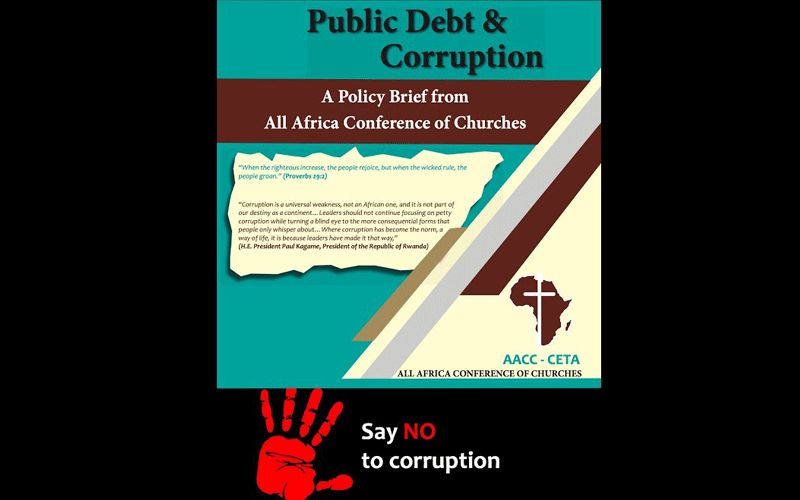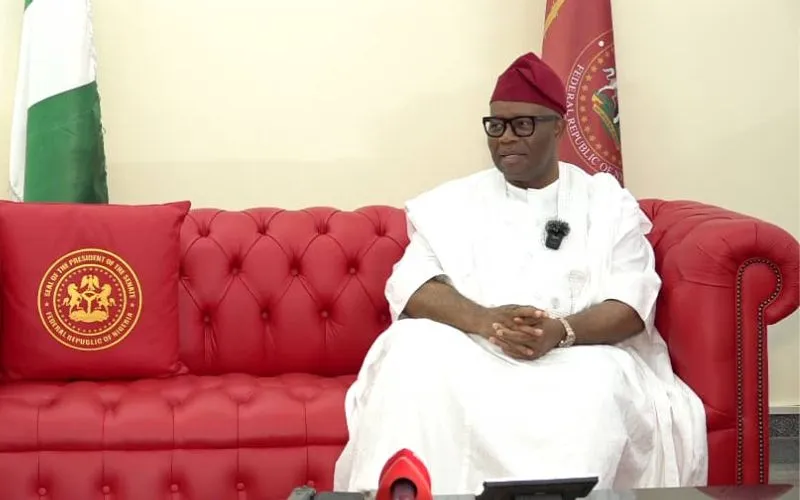“We see debt as a vehicle for a new struggle for Africa where some countries are even accepting racist and dehumanizing behavior from others because we are already being held hostage. Governments are giving away vital resources including land and minerals for senseless exploitation at the expense of their own citizens,” he lamented.
The AACC official noted that the challenge of debt is being worsened by corruption and poor governance and encouraged church leaders on the continent to raise awareness of the people and responsible citizens in their own countries and “to start again robust conversations of this battle.”
According to the official, churches in Africa play a very central role in most countries. “They are present at all levels of society and they still command a high level of trust than many other institutions of society. It is an asset that they need to use and it is also why we are launching this policy framework,” he said.
“Start and re-energize existing conversations in matters of corruption,” Rev. Mwombeki said, and added, “We need to raise the awareness of Church leaders to be equipped with knowledge of the situations in their own countries and to galvanize their members at all levels to interrogate the situations they are in. We want churches to engage in activities that will enlighten and empower their congregations to speak out.”
He said that the policy brief was a result of wide consultation among churches on the continent as well as the AACC partners and added that the conference hopes to create “a powerful coalition across Africa that is enlightened to push Africa countries to address the issues of debt and corruption.”
(Story continues below)
“We are also coming up with a program with a few countries in Africa where we will accompany churches which are ready, through research, data provision, capacity building, publicity and campaigns to address these challenges,” he said.
In her goodwill message at the launch, Charity Hanene Nchimunya, Executive Secretary African Union Advisory Board on Corruption (AUABC) said that it was a welcome initiative that the AACC is not shying away from being a part of the solution to the debt and corruption scourge.
“The Church has always spoken out for the people to ensure that social justice is reality for all. The Board therefore urges you to continue on this path of speaking out for the people, for their dignity, and respect for their human rights, which is compromised in the wake of unsustainable debt and corruption,” said Charity.
The AUABC Executive Secretary added in reference to the launch, “It is my fervent hope and prayer that the launch will usher in an era of aggressive implementation of the various recommendations as outlined in the brief… Effective implementation is key and I hope the AACC and its partners will continue to be instrumental in advocating for implementation of the recommendations across the continent and at various levels.”
Also expressing solidarity with the policy framework, Economic, Social and Cultural Council (ECOSOCC) Presiding Officer, Denis Kodhe said corruption is the worst pandemic that Africans are grappling with and urged Churches on the continent to take the fight against the vice “to the next level”.
“Corruption is a pandemic, perhaps worse than COVID-19,” Mr. Kodhe said, and added, “Our children must start rejecting wealth acquired through corruption.”
On her part, Karimi Kinoti, Head of Africa Division, Christian Aid observed that it was appropriate that church leaders were initiating plans to free people from economic bondage.
“Though Africa has evidently been spared the doomsday prediction of dead bodies owing to COVID-19, we all know the economic challenges that have come with the pandemic and the lockdown,” she said, and added that conversations on addressing debt crises would be better addressed by including all parties concerned.
As a way forward, the Christian Aid official said the relief and development agency was willing to work with AACC in revealing debt data in different countries for follow up by church leaders.
Agnes Aineah is a Kenyan journalist with a background in digital and newspaper reporting. She holds a Master of Arts in Digital Journalism from the Aga Khan University, Graduate School of Media and Communications and a Bachelor's Degree in Linguistics, Media and Communications from Kenya's Moi University. Agnes currently serves as a journalist for ACI Africa.








